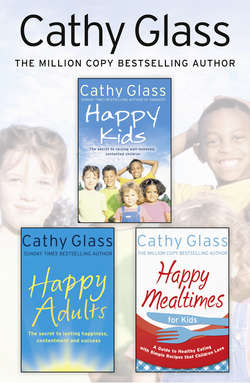Читать книгу Cathy Glass 3-Book Self-Help Collection - Cathy Glass, Cathy Glass - Страница 53
CHAPTER FIVE Factors Affecting Behaviour Stress Factors
ОглавлениеBefore we look at managing children’s behaviour in the pre-teen and early teenage years, I want to look at some factors (sometimes crises) which can adversely affect children’s behaviour at any age. Some of these factors will be obvious, some will not, while others may surprise you as being the cause of your child’s sudden decline in acceptable behaviour. Children can react to emotional events and crises very differently from adults, often internalising their pain until eventually it bubbles up and explodes into anger.
Stress is a part of everyday life, and a little stress, which gets the adrenalin pumping, is no bad thing, as it can fuel ambition and achievement. Too much stress, however, can have an adverse effect on physical and mental health, and on behaviour, in adults and children. The top most stressful factors affecting adults are generally accepted to be the death of a loved one; divorce or separation; loss of a job; moving house; imprisonment; retirement; and, since 9/11, world events. These stress factors will also affect your child, together with others, which I shall come to later.
Stress in children manifests itself in the following ways:
* sudden behavioural problems, including angry outbursts and aggression
* irritability
* mood swings
* sleeplessness, nightmares, sleepwalking, talking in their sleep, teeth grinding or clenching
* stomach ache, headache, diarrhoea
* lethargy
* hyperactivity
* having difficulty concentrating
* nail biting, hair pulling, self-harming
* being tearful
* becoming withdrawn and suddenly unwilling to socialise.
This list is not exhaustive, and different symptoms can appear together, so that, for example, a child might be very angry and confrontational one minute and dissolve into tears the next. Any sudden and worrying change in your child’s behaviour could be a sign of stress and needs to be investigated.
While you will obviously be very sympathetic and supportive as you work through a difficult time together, it is not helpful to allow your child’s behaviour to disintegrate as a result of family crisis or anxiety. Indeed keeping the familiar routine and boundaries for behaviour in place is reassuring for the child, as these factors can remain constant when others are in a state of turmoil. In managing children’s unacceptable behaviour resulting from stress, we shall still be using the 3Rs, with the emphasis on Reassuring.
